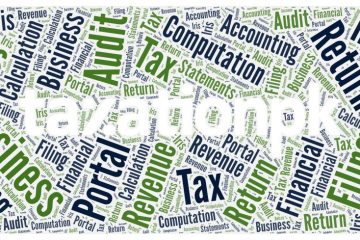Tax appeals are a crucial aspect of the taxation system in Pakistan. They provide an opportunity for taxpayers to challenge the decision of the Inland Revenue authorities and defend themselves against penalties and default surcharges. In this article, we will discuss the concept of tax appeals, their eligibility criteria, and the key requirements for filing an appeal.
What is a Tax Appeal?
A tax appeal is a specific procedure through which taxpayers can respond to the decision of the Inland Revenue authorities. The appeal is addressed to the Commissioner Appeals, who is responsible for reviewing the case and making a final decision. If the taxpayer is not satisfied with the decision of the Commissioner Appeals, they can file an appeal to the High Court as well.
Eligibility Criterion for Filing an Appeal
To file an appeal, the individual or taxpayer must be aggrieved by the decision of the Commissioner or the Inland Revenue officer. The eligibility criterion for filing an appeal varies depending on the type of taxpayer:
- For an individual taxpayer, the individual himself/herself can file an appeal.
- For an Association of Persons (AOP), any partner or individual from the firm can file an appeal.
- For a company, the principal officer can file an appeal.
- For a deceased person or a legally impaired person, their legal representative can file an appeal.
Key Requirements for Filing an Appeal
To file an appeal, certain key requirements must be fulfilled. These requirements include:
- Form of appeal and its copy: The appeal must be made on the prescribed form, and a copy of the form must be attached.
- Grounds of appeal and a copy: The grounds for the appeal must be clearly stated, and a copy of the grounds must be attached.
- 2 duplicates of order against which appeal is made: Two copies of the order against which the appeal is being made must be attached.
- Certificate of communication with officer who issued the order: A certificate of communication with the officer who issued the order must be attached.
- Certificate of service of order: A certificate of service of the order must be attached.
- Proof of fee deposited for filing of appeal: A proof of fee deposited for filing the appeal must be attached.
- Power of attorney: If the appeal is being filed by someone other than the taxpayer, a power of attorney must be attached.
It is important to note that the filing of an appeal is time-barred. The stipulated time for filing an appeal is thirty days from the receipt of the order of demand, assessment, penalty, or other enforceable action.
Conclusion
Tax appeals are a crucial aspect of the taxation system in Pakistan, providing an opportunity for taxpayers to challenge the decision of the Inland Revenue authorities. The eligibility criteria and key requirements for filing an appeal must be fulfilled to ensure that the appeal is accepted and processed in a timely manner. It is essential for taxpayers to understand the concept of tax appeals and the procedures involved to defend themselves against penalties and default surcharges.






